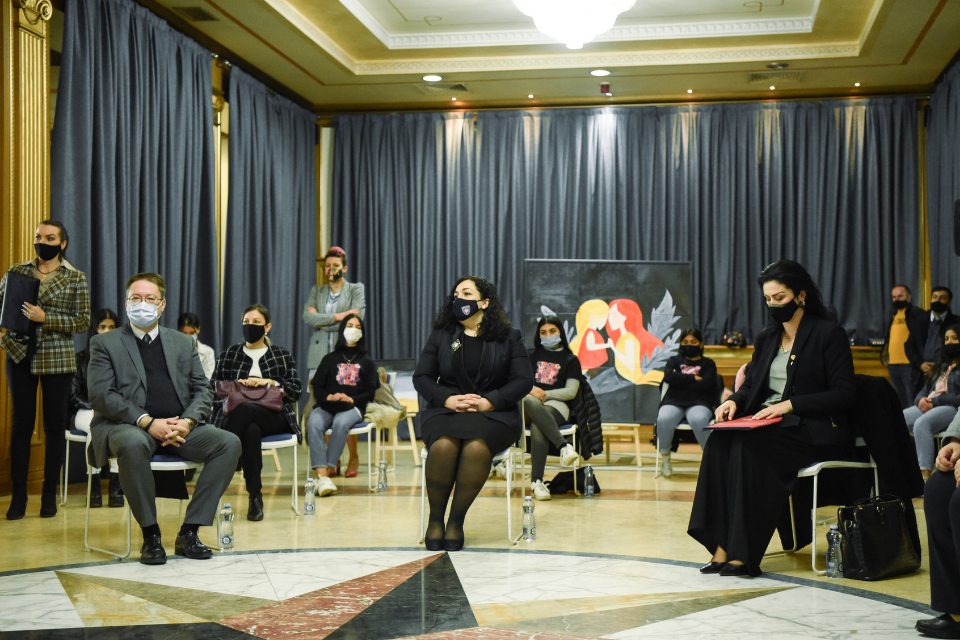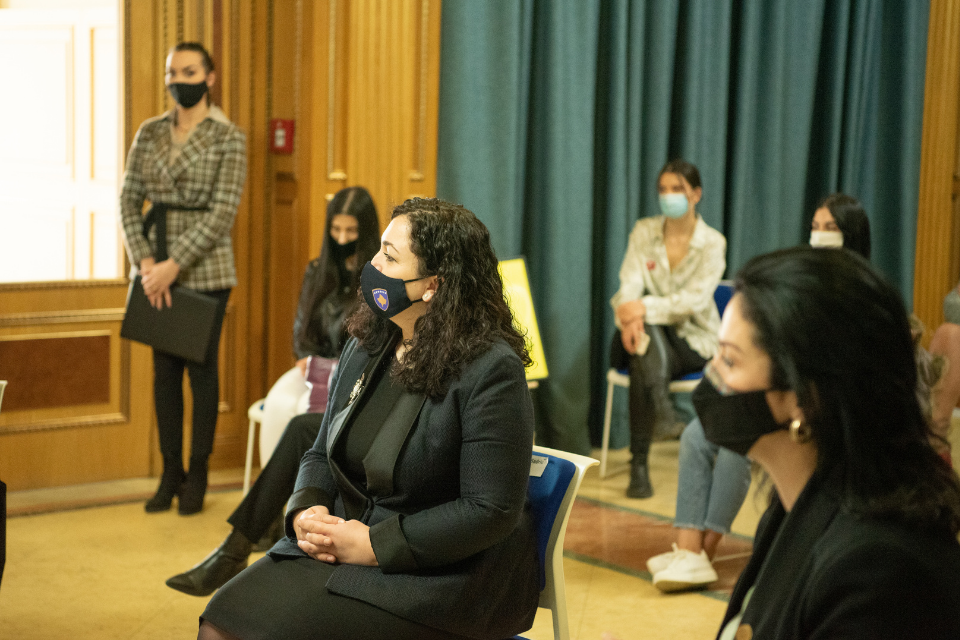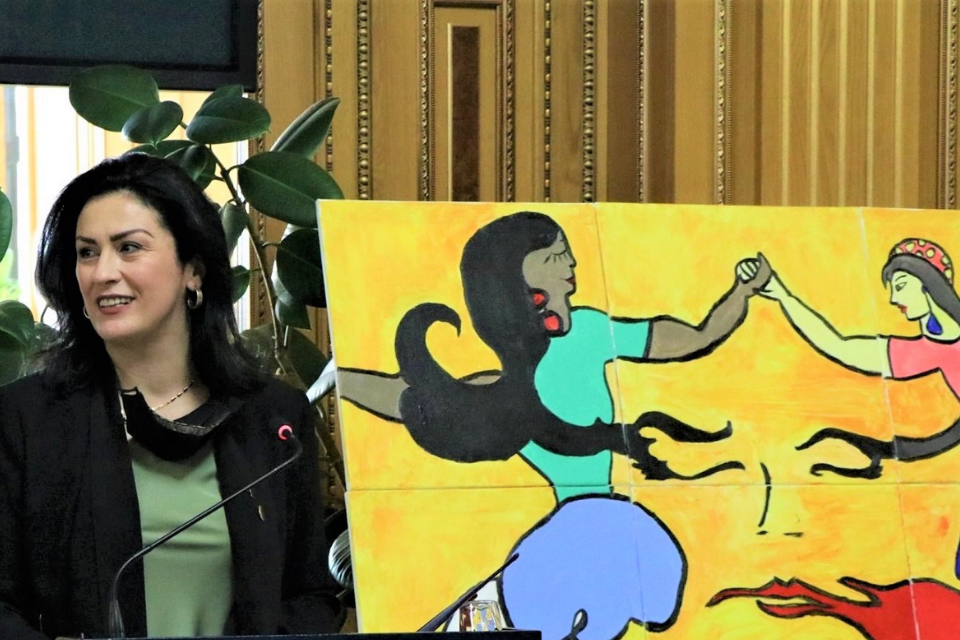Young women from non-majority communities join Acting President and UN Women to celebrate International Women’s Day in Kosovo
Date:

Under the global theme of: ‘Women in leadership: Achieving an equal future in a COVID-19 world’, the event served as inspiration for participating young women to break barriers, continue their education and become the leaders of tomorrow. UN Women organized the event jointly with the Office of the President, and partner IPKO Foundation, placing a spotlight on the need to empower young women from disadvantaged groups.

In her opening speech Acting President, Vjosa Osmani, stated: "Today, young women and girls prove that they are unstoppable wherever they are. They promote education, stand up against gender-based violence, seek action in relation to the environment they live in, and, above all, seek a place in decision-making processes. Only together will we make the voice of young women and girls heard at every table where decisions are made for them.”
Opening remarks were also made by the British Ambassador to Kosovo, Nicholas Abbott, who acknowledged the disproportionate impact of the pandemic on women and girls. “The burden of caring for children and the elderly has fallen on women and girls, while at the same time they have continued to work from their homes. And this situation has been even more difficult for those young girls and women who have already been at a disadvantage even before the pandemic. We are talking about women and girls from the most vulnerable communities, who do not always have easy access to education, training and employment,” he said.
Coupled with increased domestic care duties at home, young women and girls are at risk of falling behind in their education and ultimately dropping out of school. In fact, a Rapid Assessment conducted in Kosovo in May 2020 by UN Women, the UN Development Programme, the UN Population Fund and the UN Kosovo Team UNKT found that the pandemic has exacerbated the burden of women and girls’ unpaid care work. The Assessment also found that it hindered and limited their professional and educational performances.
Through a project called: Return to (New) Normal in Kosovo: Strengthening resilience through a safe and inclusive return to normality in health and education in the wake of COVID-19, UN Women is applying an intersectional approach to reach those left furthest behind. This includes young women and girls from non-majority communities and those with disabilities. Under the project, UN Women delivered technological equipment to young women and girls from vulnerable groups and also organized Learning English through Arts classes. Creations from these classes were exhibited on International Women’s Day, showcasing the power of art as a tool to break barriers and gender stereotypes, and empower women and girls. The project is funded by the British Embassy in Kosovo.

“When women lead, we see positive results for the whole society,” Vlora Tuzi Nushi, the Head of UN Women in Kosovo said in her opening remarks at the event. “Yet, women continue to be faced with discrimination when it comes to leadership. Let us work towards leadership which is inclusive, representing all women and girls and their abilities," she said.
After the opening remarks, Shpresa Agushi, the Executive Director of the Network of Roma, Ashkali and Egyptian Women’s Organizations in Kosovo, delivered an inspirational speech. Mrs. Agushi serves as a role model for all the young women. She has been a key figure in the fight to end early marriages among girls from these communities and to increase activism among Roma, Egyptian and Ashkali youth.
[1] All references to Kosovo should be understood to be in the context of United Nations Security Council resolution 1244 (1999).